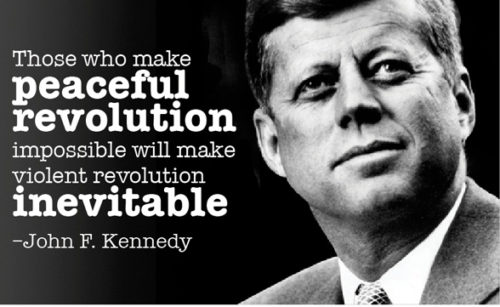This reading carries on from here.
The next chapter in Industrial Society and Its Future is ‘How Some People Adjust’, namely, how people adjust to industrial society.
The first thing that Kaczynski points out is that people naturally differ with regards to their drive for power. They also vary with regards to susceptibility to marketing and advertising techniques. These people can never be satisfied, because they will always want something else. These desires add to the collective frustration. Adding to this frustration are the wide range of instincts that our oversocialisation causes us to repress.
Other people adjust by joining a political organisation and adopting its goals, because they find satisfaction when some of those goals are achieved. By this method can their desire to partake in the power process be satisfied. Many people experience the power process vicariously through the actions of these larger political movements. On top of this are a variety of surrogate activities, but for the majority of people the desire to experience power goes unfulfilled.
In a section on ‘The Motives of Scientists’, Kaczynski dismisses the idea that scientists are driven by curiosity. Neither are they driven to benefit humanity necessarily, because some subjects (archaeology and comparative linguistics given as examples) are of no benefit to humanity at all. In reality, most scientists are simply motivated by going through the power process by way of scientific endeavour as a surrogate activity. As a result, science itself has become like a destructive juggernaut.
In ‘The Nature of Freedom’, Kaczynski defines freedom as the ability to participate in the power process to achieve real (not surrogate) goals, and without supervision or control by any outside agency. “Freedom means having power; not the power to control other people but the power to control the circumstances of one’s own life.” One does not have freedom if another entity has power over one – having permission to do something is not the same as having the freedom to do it.
We don’t actually have much freedom, because in practice freedom is a function of the economic and technological structure of a society, and not by its laws. A lack of technology makes people more free, because it makes it more difficult for the ruler to enact their will. The press is not freeing because it is tied to major media enterprises, who dominate the informational space through sheer volume. Frighteningly, our freedom is restricted, to a large part, on controls that work on our subconscious.
Kaczynski lays out some of his theory in ‘Some Principles of History’. He considers history to be a function of two subfunctions, one which is erratic and almost random, the other composed of long-term trends. Here he is concerned with the long-term trends. Outlining five basic principles of history, Kaczynski asserts that any chance large enough to change a long-term trend will also change the nature of society, and in unpredictable ways.
New societies cannot just be laid out on paper and expected to function. This is because they are too complex. The economy, the environment and human behaviour are all interdependent, and changes to any one will create changes in the others. Relating to this is the principle that people do not choose the nature of their own societies – this is something that evolves over time, and is not under rational human control.
This is the theoretical basis for his contention that industrial society inevitably will take away more and more of our freedoms. This is the argument in ‘Industrial-Technological Society Cannot Be Reformed’. Resistance is futile – as long as the general trend is towards more technology, the general trend will be towards less freedom. The sentence “It seems highly improbable that any way of changing society could be found that would reconcile freedom with modern technology,” suggests that Kaczynski saw us on a crash course with a technodystopia.
*
If you enjoyed reading this essay, you can get a compilation of the Best VJMP Essays and Articles of 2017 from Amazon for Kindle or Amazon for CreateSpace (for international readers), or TradeMe (for Kiwis).


